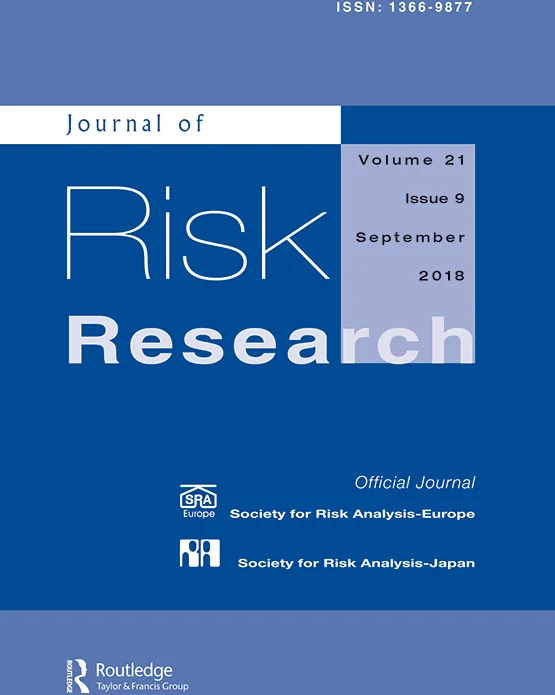企业风险管理的度量和绩效:一项全面的文献综述
IF 1.7
4区 管理学
Q1 SOCIAL SCIENCES, INTERDISCIPLINARY
引用次数: 0
摘要
全球经济危机和商业环境的复杂性使传统的风险管理体系存在缺陷。这些都为商业领袖提供了经验教训,并提高了企业风险管理(ERM)的知名度。ERM是管理组织整体风险以实现其战略目标的整体方法。尽管它具有相关性,但关于ERM的适当度量和ERM绩效的问题仍然存在。本研究对ERM的测量和绩效进行了全面系统的文献综述。谷歌Scholar是2001年至2020年期间ERM文献的主要检索工具,并对SCImago期刊排名中列出的论文进行了讨论。根据审查,没有具体的方法来衡量ERM;因此,学者们依赖不同的代理。大多数研究依赖于二手资源,特别是首席风险官的任命作为简单的ERM代理。由于难以评估ERM信息,这种方法在文献中被广泛采用。本文建议对ERM实证测量的进一步研究应依靠一手数据和二手数据,因为它们是相辅相成的。这将为稳健的ERM度量提供更多的见解,并允许考虑更多的因素。在绩效方面,ERM文献揭示了不同的发现;然而,有足够的证据支持ERM提高企业盈利能力和价值的断言。此外,高级水平的ERM实施显著提高了公司绩效。我们建议学者们考虑研究新兴经济体的erm -绩效关系,因为这些研究大多集中在美国和欧洲经济体。此外,未来的研究还应考虑研究企业绩效与企业绩效之间的非线性关系以及调节因素如何影响企业绩效与企业绩效之间的关系。企业还必须加强其ERM系统,因为较高水平的ERM实施可以提高绩效。本文章由计算机程序翻译,如有差异,请以英文原文为准。
The measurements and performance of enterprise risk management: a comprehensive literature review
Abstract Global economic crises and complexities in the business environment have flawed the traditional risk management system. These have provided lessons to business leaders and enhanced the popularity of Enterprise Risk Management (ERM). ERM is the holistic approach to managing the overall risks of an organisation to achieve its strategic goals. Despite its relevance, the question about the appropriate measurement for ERM and the performance of ERM remains. This study provides a comprehensive and systematic literature review on the measurement and performance of ERM. Google Scholar was the primary search tool for ERM literature from 2001 to 2020, and papers listed in SCImago journal ranking were discussed. According to the review, there is no specific approach to measuring ERM; hence, scholars rely on different proxies. Most studies rely on secondary sources, particularly the Chief Risk Officer’s appointment as a simple ERM proxy. This approach is widely adopted in the literature due to the difficulty in assessing ERM information. This paper recommends that further studies on the empirical measurement of ERM should rely on both primary and secondary data as they complement each other. This will provide more insight and allow more factors to be considered for a robust ERM measurement. In terms of performance, the ERM literature reveals mixed findings; however, there is enough evidence to support the assertion that ERM enhances firm profitability and value. Also, an advanced level of ERM implementation significantly improves firm performance. We suggest that scholars consider examining the ERM-performance relationship in emerging economies, as most of these studies centred on the US and European economies. In addition, future studies should consider investigating the non-linear relationship and how moderating factors affect the ERM-performance relationship. Firms must also strengthen their ERM system, as a higher level of ERM implementation improves performance.
求助全文
通过发布文献求助,成功后即可免费获取论文全文。
去求助
来源期刊

Journal of Risk Research
SOCIAL SCIENCES, INTERDISCIPLINARY-
CiteScore
12.20
自引率
5.90%
发文量
44
期刊介绍:
The Journal of Risk Research is an international journal that publishes peer-reviewed theoretical and empirical research articles within the risk field from the areas of social, physical and health sciences and engineering, as well as articles related to decision making, regulation and policy issues in all disciplines. Articles will be published in English. The main aims of the Journal of Risk Research are to stimulate intellectual debate, to promote better risk management practices and to contribute to the development of risk management methodologies. Journal of Risk Research is the official journal of the Society for Risk Analysis Europe and the Society for Risk Analysis Japan.
 求助内容:
求助内容: 应助结果提醒方式:
应助结果提醒方式:


